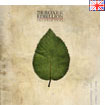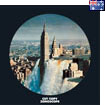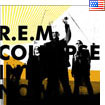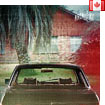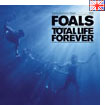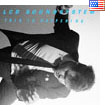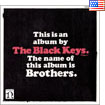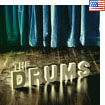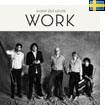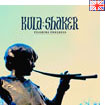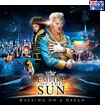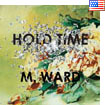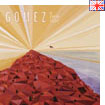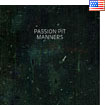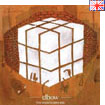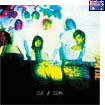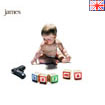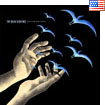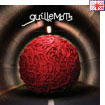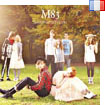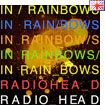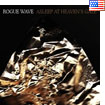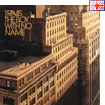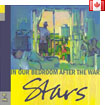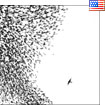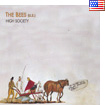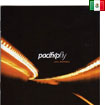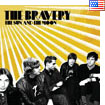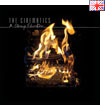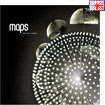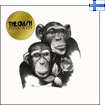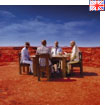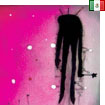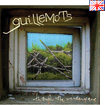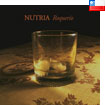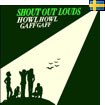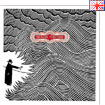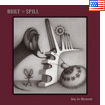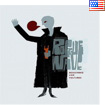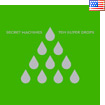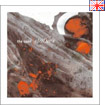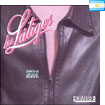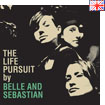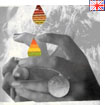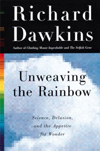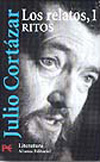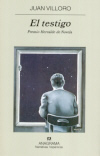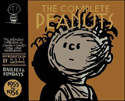Wednesday, February 14, 2007
Thoughts on Steve's Thoughts
| Steve Jobs parece tener una facilidad para pelearse con las discográficas... Tan pronto nos enteramos de que finalmente Apple Computer y Apple Corps (la discográfica que se montaron los Beatles en los sesentas) habían hecho las paces luego de tres encuentros legales a través de tres décadas, Jobs publica en el sitio de Apple una carta abierta invitando a las discográficas a quitar las tecnologías de prevención de copias a las canciones que venden en Internet--incluyendo, por supuesto, la tienda de música de iTunes--a lo cual las discográficas responden llamando a Jobs todo desde "cínico" hasta "irracional". Si lo piensas, es un poco irónico, porque si una industria ha demostrado ser cínica e irracional a través del tiempo, son las compañías de discos grandes, que meten demandas a sus consumidores por compartir su música ilegalmente, pero luego pagan de manera ilegal a las estaciones de radio para tocar a sus "artistas" prefabricados, y no pueden aceptar que el modelo de negocio está cambiando y necesitan adaptarse o quitarse del camino. (Y ni siquiera voy a entrar en la discusión de lo que tratan de vendernos como "música".) Es también irónico porque si alguien se ha beneficiado con el DRM (Digital Rights Management--las tecnologías de prevención de copias), es precisamente Apple, y son ellos los que están proponiendo deshacerse de ellas. | Steve Jobs seems to have a knack for picking fights with record companies... Just as word had gotten out that Apple Computer and Apple Corps (the record company The Beatles' set up in the sixties) had finally kissed and made up after three bouts in court spread over three decades, Steve Jobs publishes an open letter on Apple's website inviting record companies to remove copy protection technologies from the songs they sell over the Internet--including, of course, the iTunes music store--to which the record companies' responded by calling Mr. Jobs everything from "cynical" to downright "nonsensical". When you think about it, it's kind of ironic, because if one industry has repeatedly proven to be cynical and nonsensical over time, it's the major record companies, who sue their own consumers for illegally sharing copyright protected material, but then illegally pay radio stations to spin their cookie-cutter "artists", and can't accept that the whole business model has changed and they need to adapt or get out of the way. (And I won't even go into the discussion of what they tey to sell us as "music".) It's also ironic because if anyone's benefitted from DRM (Digital Rights Management--the copy-protection technologies), it's precisely Apple, and now they're the ones suggesting it be done away with. | |
| La carta viene como respuesta a algunos problemas que ha estado teniendo Apple en algunos países europeos donde los están presionando a cambiar o compartir sus tecnologías de DRM para permitir a las canciones adquiridas en iTunes ser reproducidos en cualquier reproductor de MP3, no sólo iPods; específicamente, Noruega ha declarado recientemente la tienda de iTunes "ilegal" y ha ordenado a Apple cerrar a menos que permita que la música que venda pueda escucharse en cualquier dispositivo. Poder escuchar en cualquier dispositivo la música por la que pagas hace mucho sentido. Pero Apple señala un par de problemas: DRM no es algo que se han inventado ellos por diversión o beneficio, es algo que les han exigido las discográficas que no quieren que se vendan versiones de sus canciones fácilmente copiables; y entre más sean las compañías/personas con las que tengan que compartir su software de DRM, más pronto será "crackeado", lo que quiere decir que tendrán que invertir tiempo y dinero en desarrollar una versión actualizada que necesitará distribuirse a todas las computadoras, reproductores, *y* fabricantes de reproductores, por lo que será crackeado de nuevo, y así sucesivamente, por siempre. ¿La solución de Apple? Vámonos deshaciendo de DRM por completo--lo cual yo creo sería maravilloso. Como un comprador ocasional de la tienda de música de iTunes, lo primero que hago es quemar el album en un CD, luego re-importarlo la librería de iTunes como archivos sin protección de copia. Sí, la calidad del sonido se verá reducida, pero es tan poco, que yo honestamente no lo noto, y aunque es un poco de lío, siento que es menos que el lío al que me enfrentaré algún día cuando quiera escuchar la música que haya comprado y no pueda porque está "protegida contra copia". | The letter comes as a response to the problems Apple has been having in some European countries where they're being pressured to change and/or share their DRM technology to allow the songs purchased on iTunes to be played on any MP3 player, not just iPods; specifically, Norway has recently declared the iTunes store "illegal" and has ordered Apple to allow the music purchased on it to be playable on other devices or shut down. Being able to play the music you pay for on any device you want to makes sense, of course. But Apple points out a couple of issues: DRM is not something they have come up with for fun or benefit, it's something that's been imposed on them by the record companies who don't want easily-copied versions of their content going around; and the more companies/people they share their DRM software with, the sooner it will be "cracked", meaning they'll have to invest in developing a newer version that needs to be distributed to all computers, players *and* player manufacturers, prompting it to be cracked again, and so on, forever. Apple's solution? Let's just get rid of DRM alltogether--which I believe would be amazing. As an occasional purchaser of music over the iTunes music store, the first thing I do when I buy an album is burn it on a CD, then re-import it into the iTunes Library as a copy-protection-free file. Yes, the sound quality may be reduced, but it's so little, I honestly can't notice it, and although it is a bit of a hassle, I feel it's less of a hassle than one day trying to play the music I purchased and finding I can't because it's "copy-protected". | |
| Apple da un argumento para quitar el DRM que me parece no sólo interesante, sino difícil de refutar. Además del costo y el problema de tener que desarrollar y distribuír tecnologías de prevención de copia (que la gente eludirá de cualquier modo eventualmente), una cosa que señalan es que el 90% dela música vendida hoy en día aún se vende en CDs, que no están protegidos contra copia. Apple estima que, en promedio, cada iPod que han vendido tiene 22 canciones con DRM (adquiridas en la tienda de iTunes) y el resto--que puede ir desde 980 to 19,980 canciones--no está protegido. ¿Entonces para qué molestarse siquiera con DRM? | Apple gives an argument to remove copy-protection that I think is not just interesting, but difficult to argue with. Besides the cost and hassle of having to continuously develop and distribute the software to enforce copy-protection (which people will eventually get around anyway), one thing they point out is that 90% of music sold nowadays is still sold on CDs, which are in essence not copy-protected. Apple's estimate is that, on the average, each iPod they sell has about 22 songs that are copy-protected (purchased in iTunes) and the rest--anywhere from 980 to 19,980 songs--are not copy-protected. So why even bother with DRM? | |
| Muchas de las reacciones de las discográficas son de indignación, y claramente siguen con la cabeza bajo el suelo afirmando que Apple debe compartir su sistema de DRM con otros fabricantes y que "No debe ser imposible, ni una carga insufrible, implementar interoperabilidad mientra se mantiene la seguridad de DRM"... ¿cuándo se bajarán estos tíos de su nube? (Debo admitir que una pregunta interesante planteada al Sr. Jobs es si pretende vender las películas de Pixar/Disney en la tienda de iTunes sin DRM; me gustaría leer su respuesta a eso.) | Most of the reactions from record company spokespersons are of outrage, and they clearly keeping their heads in the ground by staing that Apple should share its DRM system with other manufacturers and that "It should be neither impossible, nor unreasonably burdensome, to implement interoperability whilst maintaining the security of DRM"... when will these guys get off their cloud? (I have to admit that one interesting question posed to Mr. Jobs is if he plans to sell Pixar/Disney movies over the iTunes store free of DRM; I'd like to read his answer to that.) | |
| Es una situación complicada, con muchos jugadores, y aunque hemos mencionado al consumidor un par de ocasiones, un jugador importante--¿el más importante?--que no hemos mencionado es el músico. A veces me pregunto cuán distintas serían las cosas (en lo que a ventas de música se refiere) si a través del tiempo las grandes discográficas se hubiesen dedicado a vender buena música y promver a verdaderos músicos. Siento que con la llegada de nuevas herramientas de distribución que permiten a los usuarios a comprar directamente del artista, están asustados y tratando de sacar lo más que puedan antes de no poder hacerlo más (complicando más las cosas para músicos y consumidores entre tanto.) Sin saber cómo concluír, pararé aquí y los dejaré con esta canción y letras de una banda criminalmente subvaluada que trata del tema actual, pero quizás no del tema con el que comenzamos... | It is a complicated situation, with many players, and although we've mentioned the consumers a couple of times, one important player--the most important player?--we haven't talked about are the musicians. Sometimes I wonder how things would be different (as far as music sales go) if the big record companies over time had actually put out good music and promoted real musicians. My sense is that with the new distribution tools that allow music fans to purcahse directly from the artists, they're freaked out and trying to rake in as much as they can before they can't anymore (further complicating things for musicians and consumers along the way.) Not knowing how to conclude, I'll stop here and leave you all with this piece of music and lyrics from a criminally underrated band that talks about this matter, but maybe not the one we started with... | |
| The Sound of Muzak THE SOUND OF MUZAK por Porcupine Tree del album "In Absentia" (2002) (traducción balina de un servidor) Escucha el sonido de la música flotando en los pasillos Prozac de ascensor abracando kilómetros La música del futuro no va a entretener Está hecha para reprimir y neutralizar tu cerebro El alma es extraída... Las orillas se suavizan... La demografía... Te da lo que deseas Ahora el sonido de la música viene en píldoras de plata Diseñadas para ti produciendo emociones baratas La música de rebelión hace que quieras enfurecer Pero está hecha por millonarios el doble de tu edad Una de las maravillas del mundo se está viniendo abajo Se está viniendo abajo, lo sé Es uno de los tropiezos de este mundo que a nadie le importe Que a nadie le importe lo suficiente | The Sound of Muzak THE SOUND OF MUZAK by Porcupine Tree from the 2002 album "In Absentia" Hear the sound of music drifting in the aisles Elevator prozac stretching on for miles The music of the future will not entertain It's only meant to repress and neutralise your brain Soul gets squeezed out... Edges get blunt... Demographic... Gives what you want Now the sound of music comes in silver pills Engineered to suit you building cheaper thrills The music of rebellion makes you wanna rage But it's made by millionaires who are nearly twice your age One of the wonders of the world is going down It's going down, I know It's one of the blunders of the world that no-one cares No-one cares enough | |
| Steve Jobs' Thoughts on Music Artículo del Wall Street Journal Artículo de The Independent (UK) Porcupine Tree's MySpace page (¡Deja un comentario!) | Steve Jobs' Thoughts on Music Wall Street Journal article The Independenet (UK) article Porcupine Tree's MySpace page (Leave a comment!) |
Labels: Apple, iTunes, Music, Porcupine Tree
Comments:
Post a Comment







